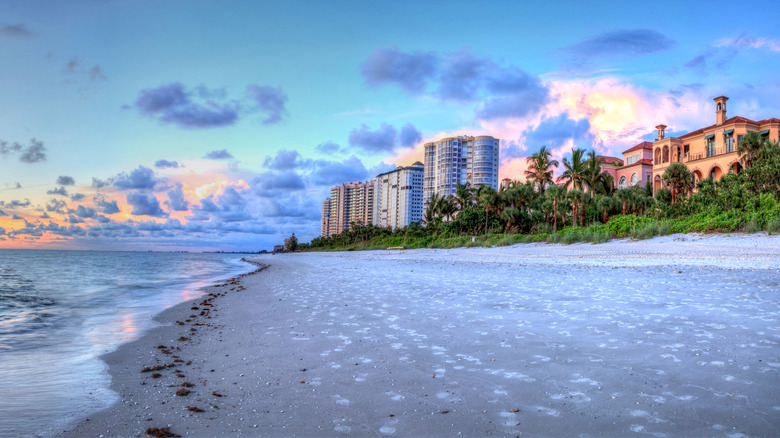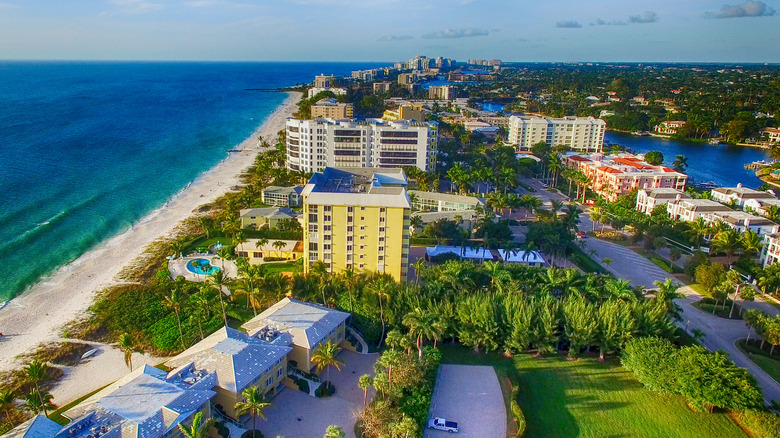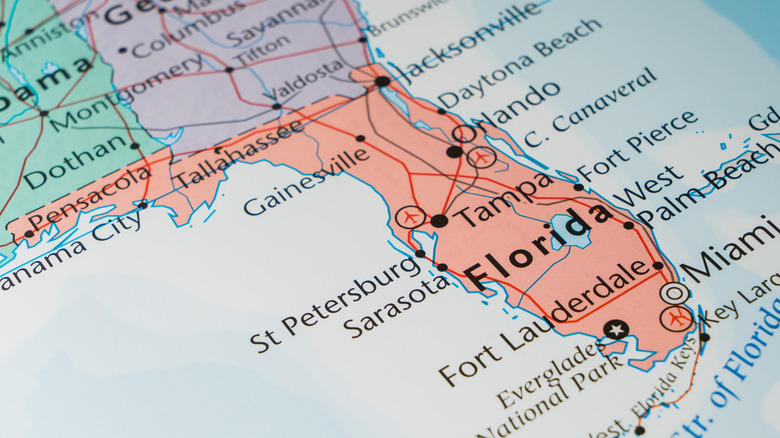The Time A Meteorological Tsunami Hit Naples, Florida
When you read the word "tsunami," you may be inclined to think of the devastating and fast-moving rushes of water that can wreak havoc on coastlines and human lives. For example, there was the 2004 Indian Ocean tsunami, which killed over 200,000 people, or the 2011 Tohoku earthquake and tsunami that devastated parts of Japan.
In fact, there are different kinds of tsunamis, and not all of them are caused by seismic events. One type of tsunami is called a "meteotsunami," or a "meteorological tsunami," and they occur when rapid changes in barometric pressure, almost always due to a storm, displace water, according to the American Meteorological Society.
One such event occurred in Naples, Florida, in 2018. While the event caused little to no damage and no casualties, it did bring 5-foot-high waves to a part of the country known more for its calm and gentle seas.
This is the story of the time a tsunami struck Naples, Florida.
Things got weird in Naples that Christmas
The week before Christmas 2018 was a busy time for Southwest Florida, weather-wise, as heavy thunderstorms battered the area. That is, of course, not unusual for anywhere in Florida, but on December 20, a storm that the Neopolitans weren't quite expecting came through town. At about 1:30 p.m. that Thursday, according to Naples Daily News, an approaching thunderstorm caused the temperature to drop 10 degrees almost instantly as well as a rise in barometric pressure. Officials predicted waves of about 1 foot, which may not sound like much, but considering that the waves there are normally measured in inches, that was quite a lot. What's more, Naples didn't get 1-foot waves that day: They got 5-foot waves.
Specifically, the event brought surges of water along beach-access walkways and caused beachgoers to get out of the way.
Fortunately, there was no damage from the event, and there were no injuries reported.
Is florida at risk of devastating tsunamis?
OK, so Florida can be and is affected by meteorological tsunamis that, apparently, do little but inconvenience tourists. But is the Sunshine State at risk of the more commonly known devastating type of tsunami that can destroy whole coastlines?
As it turns out, that's a difficult question to answer.
As Escambia County points out, though the Atlantic Ocean and the Gulf of Mexico aren't known for earthquakes the way the Pacific Ocean is, that doesn't mean that seismic tsunamis are impossible in the region. Tsunami-generating underwater landslides are always a possibility, for example. What's more, earthquake-generated tsunamis have occurred in the Caribbean islands in recorded history, including one in Puerto Rico in 1918. Further, volcanic activity or landslides in the Canary Islands could, theoretically, create an Atlantic Ocean tsunami that hits Florida, if not the entire Eastern Seaboard.
Since 2004, the United States government's tsunami warning system has included the Atlantic and Gulf Coast regions in addition to the Pacific.


